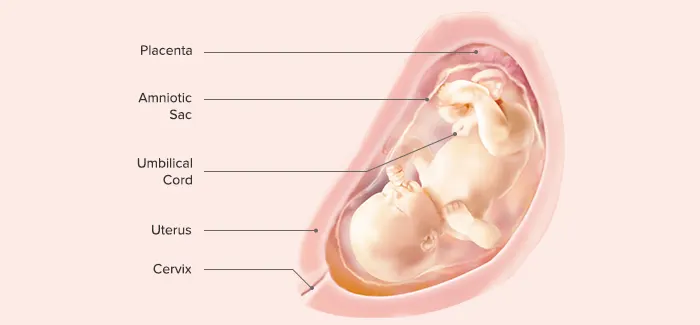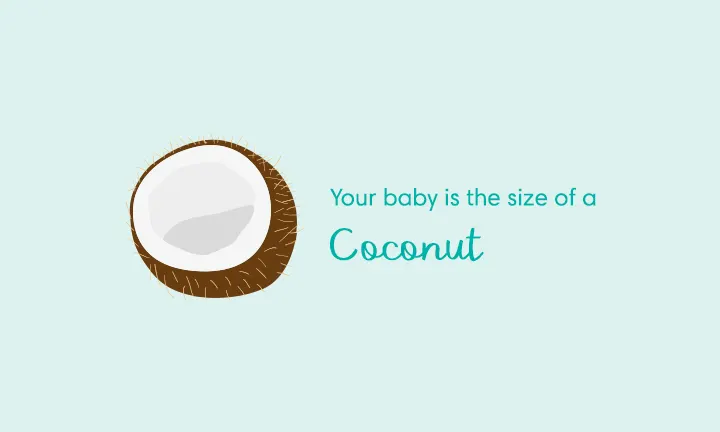31 weeks pregnant
31 Weeks Pregnant: Your Baby’s Development
Counting to 10. At 31 weeks pregnant, many healthcare providers recommend that their patients monitor their baby's movements once they're well into the third trimester. Here's one way to do this: At roughly the same time each day (if possible, the time when your baby is most active), lie down and keep track of how long it takes to feel 10 kicks, rolls, or flutters — any type of movement. Many women find it takes only a few minutes, depending on the time of day. If an hour passes without any movement, eat a light snack, lie back down, and try again. If you still don't feel anything, call your healthcare provider.
Go slow. Don't worry, however, if your baby seems less active as the weeks progress. In fact, less-frequent movement now means she's right on track (assuming you are counting 10 movements in an hour or two each day). Her movements are simply becoming less erratic and more organized; also, there's not as much room in your uterus as there was just a few weeks ago.
Get ready, get set. During 31st week of pregnancy, your baby has been in a curled up position for a few weeks now. She'll put on another 2 pounds this month, and in just nine weeks, she'll be ready for a face-to-face meeting with you.

31 Weeks Pregnant: Your Symptoms
Losing your breath? That's because your ever-expanding uterus is pushing your diaphragm into your lungs. If you're carrying low, consider yourself lucky — women carrying high have a much tougher time breathing. If you find yourself huffing and puffing, slow down and take a few deep breaths. Toward the end of your pregnancy (around week 37 or 38), you may get a break as your baby drops down into your pelvis, easing up on your diaphragm and lungs.
Choosing child care. Whether you're considering a nanny, day care, or care from a relative, start researching and interviewing prospective choices during 31st week of pregnancy. Even if you're not going to need full-time care, you may want to gather a few babysitter recommendations for special occasions.
Preterm labor or Braxton Hicks? You've likely been on the lookout for preterm labor symptoms since the middle of your second trimester. Now that you're in your 31st week of pregnancy, third trimester, your body may begin to practice for labor. These practice contractions are called Braxton Hicks contractions. They are different from preterm labor contractions and are no cause for alarm. How do you know the difference? If the contractions are irregular and go away when you change positions or walk around, you are probably experiencing Braxton Hicks. Contact your healthcare provider if you have any questions. Know more about how Braxton Hicks contractions are different compared to real contractions.
31 Weeks Pregnant: Your Checklist
If your healthcare provider recommends it, start counting your baby's movements during the 31st week of pregnancy
Slow down and take a few deep breaths if you find yourself getting out of breath. Get week-by-week expert tips on pregnancy to keep track of your baby’s development & to ensure well-being of both you & your baby during entire nine months journey!
Be on the lookout for Braxton Hicks contractions when 31 weeks pregnant
Sign up for weekly pregnancy tips
